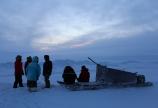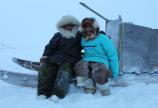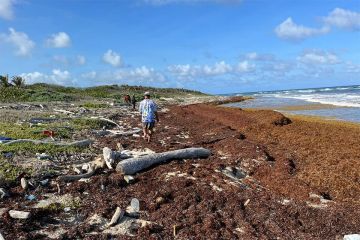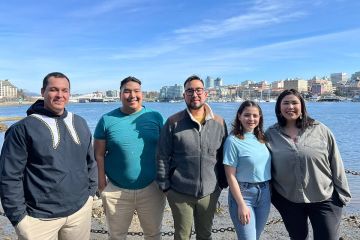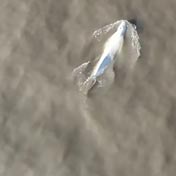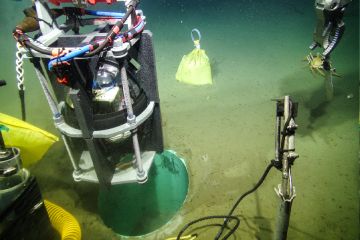Local knowledge, community needs drive Arctic sea ice research
- Jody Paterson
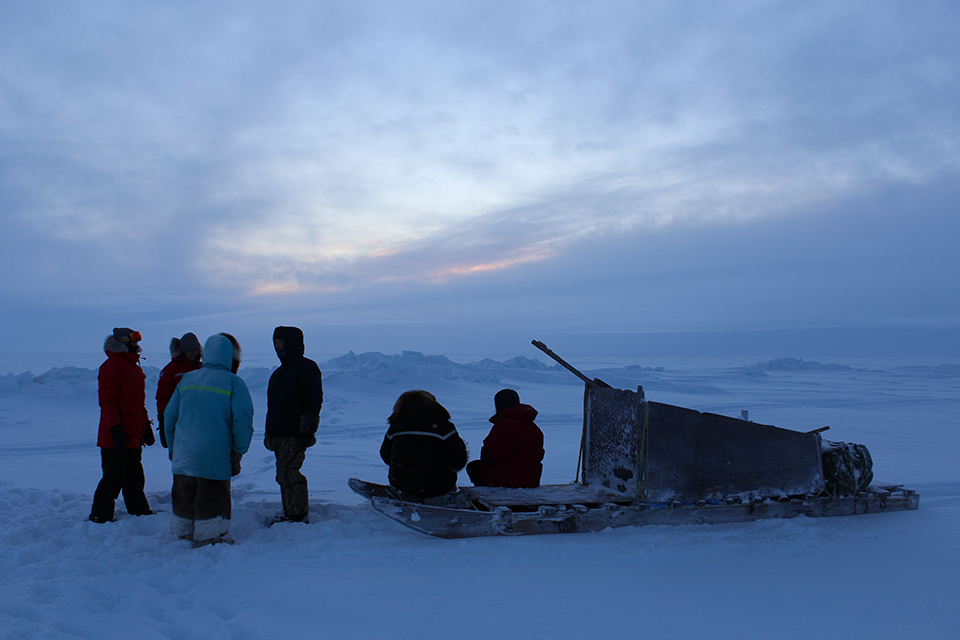
Expanded community engagement into more Arctic communities is helping UVic’s Ocean Networks Canada (ONC) carry out the ocean science that matters most to the people who live in Canada’s North.
ONC received $247,000 from Polar Knowledge Canada (POLAR) in December to expand its successful community-engagement program in Cambridge Bay, Nunavut, to the communities of Kugluktuk and Gjoa Haven. The two-year grant, focused on the science of sea ice, continues POLAR’s support for ONC’s community engagement efforts in the Arctic.
“Research driven by the needs of a community is well-established in areas such as health and social work, but it’s lagging in the sciences,” says Maia Hoeberechts, project lead at ONC.
We have the intention with all of our projects of doing scientific work in ways that are meaningful to the communities we work with. But what really excites me about this one is that it’s the first time we’ve been funded exclusively to work with the communities, with the option to develop a follow-up research proposal with them if there’s interest.
—Maia Hoeberechts, project lead at ONC
The study of sea-ice processes is a key aspect of understanding climate change in the Arctic. Ice growth, melt rates and ocean acidification are all affected by increasing amounts of carbon dioxide and other greenhouse gases in the atmosphere, largely a result of burning fossil fuels.
ONC will conduct interviews with youth, hunters, Indigenous elders and non-Inuit community members in Kugluktuk and Gjoa Haven as part of the project, and will replicate its two successful youth engagement programs launched in Cambridge Bay in 2014 and 2016.
Young community members are encouraged to make their own observations, analyze ONC data and talk to Indigenous Elders. The project will also train college students in the North in ONC instrumentation.
The project will improve accessibility of information for people in Arctic communities by translating and sharing data from ocean monitoring bodies including Fisheries and Oceans Canada’s Canadian Ranger Ocean Watch program and the Canadian Ice Service—both partners in the project. That data will be shared with the public as well as via Oceans 2.0, ONC’s data portal for deep-sea information collected by its network of undersea observatories.
ONC has been collecting data and detecting environmental change in the Arctic Ocean for more than five years at Cambridge Bay. The state of sea ice due to climate change is a global concern, and scientific conjectures that the Arctic Ocean will be ice-free by 2030 has accelerated the need for understanding how the Arctic functions and responds to climate change.
Photos
In this story
Keywords: Arctic, oceans, climate, Indigenous, youth, Nunavut, Ocean Networks Canada, Polar Knowledge Canada, community, geography
People: Maia Hoeberechts
Publication: The Ring

